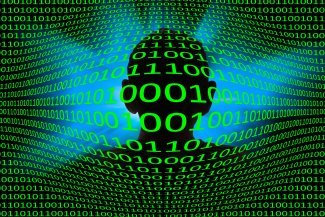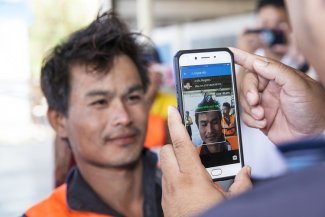The regulation of artificial intelligence (AI) is a key issue on the agendas of governments, parliaments, international organisations, developers and programmers, as well as social movements around the world.
In the context of increasing human-algorithm interaction through digital tools and the need to respond to the challenges posed by their social impacts, human rights ministers from Mercosur countries met in Brasilia, Brazil last week and approved a Declaration of Principles on Artificial Intelligence.
The text, drafted and consolidated by the national delegations with technical support from the Mercosur Institute for Public Policy on Human Rights (IPPDH), sets out new rights and reshapes existing ones to address the challenges and complexities of the digital era.
The Mercosur Meeting of High-Level Authorities on Human Rights (RAADDHH), led by Brazil’s Minister of Human Rights and Citizenship Sílvio Almeida, made a significant step forward in the definition of concepts such as algorithmic racism in the application of facial recognition systems and generative artificial intelligence tools.
The Declaration of the Mercosur human rights ministers is conceptually innovative in that it adopts a decolonial approach, recognising the importance of preserving and promoting the cultures, knowledge and languages of Indigenous and traditional communities, thus contributing to a more equitable outlook on the region’s technological landscape.
A tool that recognises and reinforces rights
The text recognises and reinforces the rights set out in recent national data protection regulations, such as privacy and transparency rights based on principles like human centrality, highlighting the commitment of Mercosur countries to fight bias and discrimination in the programming, training and application of AI systems, addressing issues such as gender, race, ethnicity, religion, etc., and the use of algorithmic management tools in the world of work.
Algorithmic subordination, or workers’ increasing dependence on algorithms, is featured in the Declaration, given how automated decision-making has radically transformed the world of work.
Digital platform workers, such as transport service or delivery drivers, are cited, given their vulnerability to the impact of algorithms, which are applied to key aspects of their work, from the assignment of tasks to the assessment of their performance.
The recognition, for example, of the right to algorithmic transparency in the world of work increases workers’ chances of being able to bargain collectively on matters related to AI systems and the implications of using algorithmic management tools.
Programming criteria and the use of data collected by artificial intelligence systems are strategic issues in the fight for workers’ rights, and not only for digital platform workers, but also for those in a whole range of professions impacted by the gradual implementation of these tools in their working environment.
Explainability and human control are, along with the principle of transparency, considered essential to ensuring that decisions made by AI systems are understandable, supervised and explainable. The text calls for the development of clear accountability and responsibility mechanisms to ensure that companies programming and developing AI systems are held accountable for their actions and decisions.
The Declaration reaffirms universal internet access as a fundamental human right, committing the member states to eliminate the digital divide and to promote full participation in the digital economy, ensuring that the citizens in the bloc are able to enjoy the benefits of artificial intelligence, with a view to reducing social inequality in the region.
With this in mind, the instrument stresses the importance of promoting digital education and training to continuously build workers’ skills in the digital age. As automation and artificial intelligence transform the technological skills required in the workplace, ensuring internet access and quality digital training is increasingly essential for workers to adapt to the changing demands of the labour market.
The integrity of information on digital platforms in the context of democracy is highlighted by ministers as key to ensuring the right to freedom of expression and avoiding distortions that lead to human rights violations. The text seeks consensus on the idea that digital platforms should avoid using algorithms that create harmful information bubbles tending to influence their users’ perception of reality.
Finally, the Declaration addresses and recognises the need to lay the foundations for international governance of artificial intelligence. The Mercosur human rights ministers commit to contribute to and take an active part in international forums dedicated to the governance of artificial intelligence. In this context, social participation in public policies on artificial intelligence is emphasised, promoting cooperation between parliaments, civil society and organisations in multidisciplinary consultation spaces.
Multisectoral collaboration for the responsible development of artificial intelligence is recognised as fundamental, and attention is drawn to the need to broaden the regulatory debate on artificial intelligence to include academic institutions, laboratories, companies and civil society organisations, to ensure that these technologies are designed in a way that is ethical and respectful of human rights.
Close cooperation between Mercosur parliaments and civil society organisations ensures social representation and participation in the creation, implementation, monitoring and evaluation of policies and regulations on artificial intelligence.
The Mercosur Declaration not only sets out ethical principles for artificial intelligence at large, but also provides a specific framework that protects rights in social, cultural, communicational and working environments that are increasingly subordinated to algorithms.
By championing new human rights in the digital age, this instrument stands as a guiding light in the search for a fair balance between technological innovation and the protection of rights. The effective implementation of these principles seeks to lay the foundation for a future where technology and human rights coexist in harmony.












